- Home
- David Dalglish
Magic, Myth & Majesty: 7 Fantasy Novels Page 40
Magic, Myth & Majesty: 7 Fantasy Novels Read online
Page 40
The Cadigus family had done the same to his home and family. The dead of Confutatis were his brothers now, bonded in grief. His eyes stung and his breath shook.
I don’t want any of this, he thought. He climbed over half a child’s skeleton; the legs were missing. I never wanted this! All I wanted was to live quietly, to see Tilla again, to help Cadport cling to hope. Not this death. Not this war.
He lowered his head. He missed home. He missed his father, his dog, his books, and everything else. The pain filled his belly like ice.
Kaelyn squeezed his hand. He looked up to see her gazing at him softly.
“I’m sorry, Rune,” she whispered. “I’m sorry you have to see this.” She touched his cheek. “But you need to. You need to see everything Frey Cadigus has done. And you will need to remember this.” Her eyes hardened. “You will need these memories when you face him.”
He laughed mirthlessly. “Face Frey Cadigus? After seeing these ruins, Frey is the last person I want to confront.”
“I know,” she said. “Yet you are the heir of Aeternum, and he seeks you. He will find you. He will want to slay you himself. And you will have to fight him. And when you do, remember this place.” She looked around her. “Remember why you fight.”
Rune sighed, shook his head, and kept walking. He could not get rid of that lump in his throat.
“You’re mad, Kaelyn,” he said. “Mad! I joined you only because Shari burned my home. But to fight your father? The emperor himself?” He barked another humorless laugh. “I’m only a brewer. Not a warrior.”
“You were a brewer,” she whispered. “A warrior you will become. Valien will teach you. We are near.”
They kept walking through the ruins. They walked across a wide, cobbled square strewn with hundreds of skeletons still clad in sooty armor. They passed a shattered temple; its dome was cracked open like an egg, skeletons slung across its shattered rim. They were walking down a street littered with bricks, shattered shields, and bones when a shriek tore the air.
A dragon shriek.
Rune bent low and scurried for cover. Kaelyn leaped at his side. They landed in a ditch, scuttled under a fallen statue, and huddled deep in shadow.
They had run for cover so many times over the past ten days. Rune’s knees and elbows were skinned from a hundred dives under logs, brambles, or tangled roots. Yet in the forest, the leafy canopy had offered extra concealment. Here in these ruins, the sky was clear; peering from under the fallen statue, Rune saw the dragon in all its wrath and flame.
The beast had copper scales, white horns, and great black wings like curtains of night. It shrieked to the sky, then swooped and blasted fire across the street. Walls of flame roared before Rune, heat blasted him, and he cursed and grabbed his sword.
“Bloody stars!” he hissed. “I thought you said this place was safe, Kaelyn.”
She knelt beside him in the shadows. The fallen statue stretched above them, forming a roof. Kaelyn’s face glistened with sweat. She clutched a dagger in her hand, bared her teeth, and breathed sharply.
“Hush!” she whispered. “Keep your voice down. This dragon hasn’t seen us. If he had, we’d be dead. They patrol these ruins several times a day.”
Rune rolled his eyes. “And you chose your hideout here? Where your father’s dragons patrol daily?”
She tightened her cloak around her. “Forests can be uprooted. Towns can be toppled. Forts can be crushed. This place is already dead—lots of places to hide, nothing left to tear down.”
Perhaps Kaelyn was right, Rune thought. The forests had seemed to offer no more safety, and as for Cadport, well… Rune’s chest still ached to remember Cadport. Perhaps no place was safe anymore from Frey Cadigus. Once this had been a distant kingdom; now it lay ruined. Now there was just this, just the empire, as far as they could go.
And Kaelyn thinks we can topple it!
Rune wondered if he was crazy to even be here. He could grow a beard to disguise his face, he thought. He could take up a false identity, move to a new town, and find work. He didn’t have to fight this war. He didn’t have to walk through death.
He had thought this many times over the past few days. And yet he had kept following Kaelyn through forest, field, and ruin. Why? Was it Kaelyn’s big eyes and her body pressed against his? Or had he simply gone mad?
I can’t keep doing this, he thought. I’ll listen to what this Valien has to say. I’ll tell him I’m not the man he’s looking for. And then I’ll leave this place and forget about the whole damn rebellion.
Finally the dragon shrieks faded into the distance. Kaelyn released her dagger and began crawling back onto the street.
“Come on,” she said and looked over her shoulder at him. “Follow me. Another dragon won’t be back for hours.”
Rune sighed. “So said half the skeletons on this street, I reckon.”
Yet as she walked down this street of death, he followed. In the distance, he could see the dragon flying into the southern horizon, a mere speck blowing a thread of fire. Crows replaced it in the sky; a few dipped down to pick at old ribs.
They reached a wide, cobbled boulevard that looked wide enough for a hundred men to walk abreast. This must have been the main street of Confutatis. Along its sides, the iron frames of chariots rusted, and the skeletons of horses lay shattered. The stems of lost columns, the shells of burnt towers, and crumbling walls lined the roadsides in a palisade of destruction. Far ahead, past mist and shadow, the path led to a shattered palace, its pocked walls rising from ash and ending in ruin. Even the crows did not fly above this street, as if they feared it.
“What is this place?” Rune whispered.
“Welcome,” she said, “to the Boulevard of Bones. It leads through death. It leads through old fire. It leads to hope.”
They began to walk down the street. The skeletons at their sides seemed to stare at Rune. The skull of a horse grinned. Ash carpeted the cobblestones; it muffled their footfalls and stirred around their boots. Rune was looking at the burnt skeleton of a child, a sword piercing its ribcage, when movement caught his eye.
He spun sideways, clutched his sword, and drew a foot of steel.
“Kaelyn!” he hissed.
An archer stood in the broken tower, peering through a crack in the wall. The man wore a gray cloak smeared with ash, and gray paint covered his face; he blended into the tower’s bricks. Rune snarled and prepared to dive for cover, but Kaelyn gripped his arm.
“It’s fine, Rune!” she said. “He’s one of ours.”
She pushed Rune’s sword back into its scabbard and nodded at the archer. She raised her left hand, holding her index and middle fingers pressed together. Inside the shattered tower, the archer returned the gesture and lowered his bow.
As they kept walking down the boulevard, more movement stirred. Rune looked from side to side and blew out his breath. Dozens of archers hid here, each one cloaked in gray, the color of the ruins. They peeked from broken towers, from behind shattered walls, and from under fallen statues. As Kaelyn walked by, they each raised their hands in salute, index and middle fingers pressed together.
“Welcome, Rune,” Kaelyn said softly, “to a voice of hope, to a light in the dark, to courage in an empire of fear.” She gave him a sad look that spoke of her childhood, of countless deaths, and of hope almost lost under pain. “Welcome to the Resistance.”
They kept walking down the Boulevard of Bones. All around among the broken towers, walls, and halls they hid—warriors of the Resistance. As Rune walked, his head spun. Every year in Cadport, soldiers of the Regime would speak of the resistors’ evil and might. Every year, they would draft all those turned eighteen, cart them off to forts, break and mold them into soldiers, then send them off to fight the Resistance. Rune had always imagined hosts of demonic beasts mustering with fire and steel. But this… this was just a rabble. Here were only a few men—Rune doubted he saw more than a hundred—clad in rags and dust, their blades chipped.
Th
is isn’t an army.
The Cadigus Regime had been lying to its people, Rune realized. With fiery speeches and military terror, they had turned a toothless pup into a rabid beast. The wars against the phoenixes, the griffins, and the wyverns had ended years ago. With Requiem’s external foes defeated, Frey Cadigus needed a new enemy, Rune realized. He needed a new way to terrify his people, to rally them around a threat. How else would a soldier keep his power? How else could Cadigus maintain his iron grip, if not with fear of monsters?
This Resistance is nothing but a ghost of a threat, Rune thought. They cannot win. Not with me here. Not with ten thousand more men. This is a hopeless war. They only serve to give Frey Cadigus the enemy he so desperately needs.
They continued down the Boulevard of Bones, this vein of destruction Cadigus had carved. With every step, they drew nearer to the fallen palace of Confutatis. Soon its ruin rose before them.
In one of the books Rune had hidden under his floor planks, he had seen an illustration of this palace. Its dozen towers had risen into the clouds. Banners had streamed upon its walls. Soldiers bearing red, green, and yellow standards had ridden horses through its gates. All of that was gone now. The towers lay broken. A single archway rose in a crumbling wall; its doors had burned away. A few walls still stood, and a few archers still manned their arrowslits, but that was all. If this was the heart of the Resistance, Rune thought, it was barely beating.
“Is Valien in there?” he asked.
Kaelyn tightened her cloak around her; it was flapping in the wind. She nodded and clutched her bow tight to her chest.
“He is in there,” she said. “Our leader. Our guiding star. Valien Eleison, leader of the Resistance.”
Rune shook his head. She treats me like a child, he thought, yet she speaks of this Valien as a god. How mighty could this Valien be if he dwelled in ruin? Was this truly a man to speak of in awe? Judging by Valien’s home, they were going to see not a great leader, but a ragged outlaw barely better than those who roamed the forests, seeking travelers to rob.
They walked toward the archway. Several haggard men stood alongside it, their cloaks the same gray as the bricks, their faces ashy. When they saw Kaelyn, they lowered their bows and heads.
“My lady Kaelyn,” one said.
“Welcome home, my lady,” said another.
She nodded at them, the wind in her hair. She stepped through the archway into shadow. With a last look at the skeletons that littered the boulevard, Rune followed into the darkness.
11
TILLA
Six soldiers surrounded the square, standing on pedestals and shouting names from scrolls.
“Yar Potter!” one soldier shouted, a portly man with a dark beard.
“Sana Tanner!” shouted another soldier, a muscular woman with a thin nose and cold, black eyes. “Sana Tanner!”
Tilla stood in the square with the other youths of Cadport. As every name was called, that recruit moved to join the summoning soldier. As Tilla stood, waiting to be summoned, she squinted at the six soldiers crying out the names. Each wore a black breastplate and pauldrons. Upon each shoulder, they sported a red spiral.
“Lanses,” Tilla whispered. “That is their rank.”
When speaking from the walls, Nairi—the soldier with the short yellow hair—had called herself a lanse. The young woman now stood upon one of the pedestals, also shouting names from a scroll.
The lanses seemed young—Tilla guessed them little older than herself—but lofty and well groomed. Each displayed a different sigil upon his or her breastplate. Nairi sported a black rose; other lanses displayed red skulls, dragon heads, towers rising from thorns, and other emblems. These were no brutes like Beras; Tilla guessed them the sons and daughters of noble houses, their blood too pure to serve among the unwashed commoners.
She thought back to Cadport. Soldiers there displayed their rank—one or more red stars—upon black armbands; their shoulders bore no red spirals, and their breastplates sported no emblems. Only the lord of Cadport, a gaunt and dower man, wore red spiral insignia and displayed a sigil—his was a boar—upon his armor.
The lanses are young officers, Tilla understood. Noble born. They wear their house’s sigils upon their breasts. The others are the common soldiers, like I will become once I’m sorted.
Standing on a pedestal, scroll in hand, Nairi shouted. “Mae Baker!” The young lanse looked over the crowd with narrowed eyes. “Mae Baker!”
Tilla looked to her left. Mae stood there, eyes wide and damp, face chalk-white.
“I…” Mae’s lips trembled. “I… I don’t…”
Nairi shouted louder and reached for her punisher. “Mae Baker, damn it, report to me!”
Mae sniffed, feet frozen on the ground. Her body shook.
“Go to her, Mae,” Tilla said. She gave the girl a gentle push. “Go to Lanse Nairi and stand before her. It’s okay.”
Sniffing and looking around, Mae took hesitant steps forward. She looked over her shoulder at Tilla, as if unsure whether to proceed. Tilla gestured her on.
But Nairi was less patient. The officer snarled and leaped off her pedestal. As she marched forward, she drew her punisher from her belt. The tip crackled with red lightning.
“Are you Mae Baker?” the lanse demanded, marching toward Mae. Her every footstep clanked across the square.
Mae stood frozen and nodded, tears in her eyes.
With a snarl, Nairi drove her punisher forward, bringing its tip hard into Mae’s stomach.
Smoke rose.
Lightning crackled across Mae.
The girl screamed, doubled over, and begged. Nairi stood above her, growling and shoving her punisher against Mae’s flesh.
No! Tilla wanted to shout. She took two steps forward. She froze. She winced. Please stop! She wanted to rush forward, to shove Nairi back, to save her friend… yet she only stood staring, eyes stinging and feet frozen.
Finally—after what seemed like ages—Nairi pulled her punisher back.
Mae collapsed against the cobblestones, legs twitching and the last wisps of lightning racing across her before vanishing in smoke. Tears streaked her cheeks and she whimpered.
“Mewling dog,” Nairi said. She spat. “When I call you, you race to me like an obedient pup.” She raised her voice to a shout. “Do you understand me, you flea-bitten mongrel? Stand up, damn it!”
Mae whimpered, still lying on the ground.
“You better stand up, dog,” Nairi said, teeth bared, and raised her punisher. “Do you want some more?”
Finally Tilla could move. She leaped forward, knelt by Mae, and reached under her arms.
“Come on, Mae,” she said softly. “Stand up. On your feet. I’ll help you.”
She pulled the trembling, weeping girl to her feet. Mae stood shaking so wildly Tilla had to hold her up. Burn marks spread across her tunic.
“Well, well,” Nairi said. She laughed mirthlessly, tapping her fingers against her thigh. “Seems like you have a guardian, Mae Baker.”
“Just a friend,” Tilla said quietly.
She stared at the lanse; for the first time, she got a close look at Nairi. Most women were shorter than Tilla, and Nairi was no exception; the young woman had to raise her eyes to meet Tilla’s gaze. But Nairi was strong, far stronger than Tilla; she could see that. This young woman had not shaped her muscles from weaving ropes, but from swinging swords. Her stance, her haughty green eyes, and her bared teeth all spoke of a huntress, a thirst for blood and battle. Her yellow hair was short like a boy’s, but her lips were full and red and cruel, and they twisted in disdain.
“What is your name, dog?” Nairi hissed.
“Tilla Roper,” she answered.
Nairi stared at her, eyes narrowed and burning with green fire. Then she spat again, looked down at her scroll, and smirked.
“Good,” she said slowly, as if savoring the word. “Very good. Tilla Roper—you’re one of mine.” She looked back up at Tilla. “I will enjoy break
ing you. Go join the others! Take your pup with you.”
Tilla’s heart sank.
Stars, oh stars, I’ve been sorted into Nairi’s phalanx. She swallowed. The one officer here to use her punisher—and she’s now my commander, and already I’ve angered her.
“Go on, move!” Nairi shouted and snarled. She thrust her punisher, forcing Tilla to leap back.
Clenching her jaw, Tilla began to walk toward the pedestal, helping Mae along; the young baker limped upon shaky legs, and her clothes still smoked. As Nairi kept shouting out names, the two girls reached the pedestal. Several other recruits already stood there. Looking around, Tilla saw Cadport’s youths forming six groups.
They’re called phalanxes, she thought; she vaguely recalled hearing the term. Looking around, it seemed that each phalanx held a hundred recruits. A lanse commanded each group.
Tilla squinted and tried to understand how each phalanx was formed. Who had written the names on the scrolls? Had they been sorted randomly, or was there some method here—farmers to one phalanx perhaps, tradesmen to another? All Tilla saw was that male lanses led three phalanxes; they took command of Cadport’s boys. Women commanded the remaining three; the girls of Cadport were sorted into these.
The lanses continued shouting out names. More and more girls kept joining Nairi’s phalanx and crowding around Tilla.
Finally Nairi shouted out the last name. “Erry Docker!”
The slim girl, her short brown hair mussed across her brow, raised her chin and marched to stand among them.
“Well, griffin guts,” the waif said and flashed a grin. “Tilla-bloody-Roper. I thought I was rid of you, I did. Looks like I’m stuck with you.” She shoved her way among the recruits, giving Mae Baker a particularly strong push. “Shove off! Make room.”
Tilla was strangely relieved to see the fiery, foulmouthed girl among them. In Cadport, Erry was known as the city’s chief troublemaker. An orphan, she claimed that her father had been a dockhand, and that she would beat bloody anyone who claimed otherwise. Behind her back, many did claim otherwise; they whispered that Erry was born of a dockside prostitute and a penniless, foreign sailor.

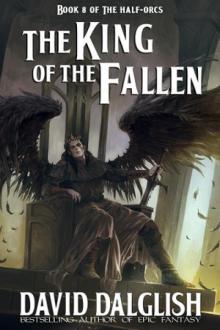 The King of the Fallen
The King of the Fallen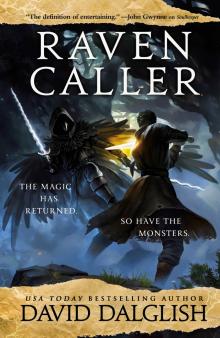 Ravencaller
Ravencaller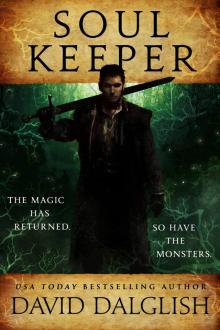 Soulkeeper
Soulkeeper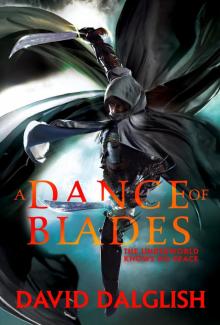 A Dance of Blades
A Dance of Blades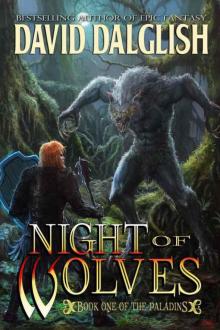 Night of Wolves p-1
Night of Wolves p-1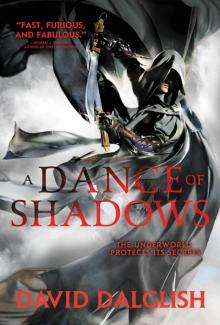 A Dance of Shadows
A Dance of Shadows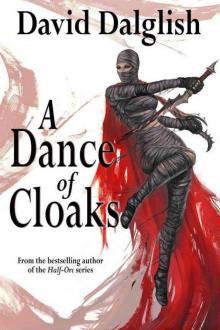 A Dance of Cloaks s-1
A Dance of Cloaks s-1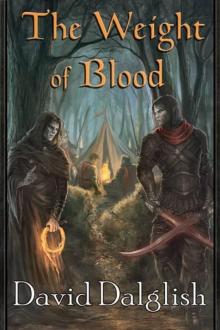 Weight of Blood
Weight of Blood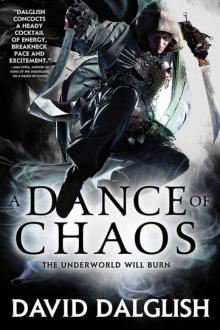 A Dance of Chaos
A Dance of Chaos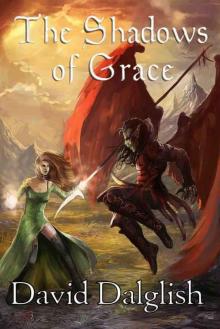 The Shadows of Grace h-4
The Shadows of Grace h-4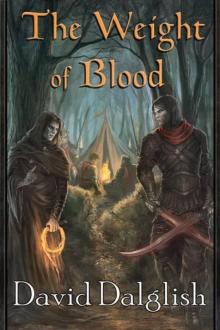 Weight of Blood h-1
Weight of Blood h-1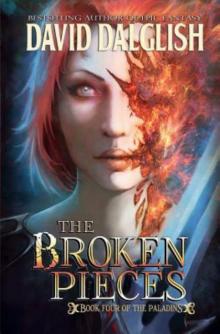 The Broken Pieces
The Broken Pieces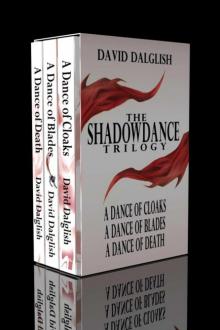 The Shadowdance Trilogy
The Shadowdance Trilogy A Dance of Death (Shadowdance Trilogy, Book 3)
A Dance of Death (Shadowdance Trilogy, Book 3)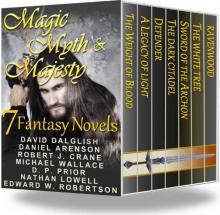 Magic, Myth & Majesty: 7 Fantasy Novels
Magic, Myth & Majesty: 7 Fantasy Novels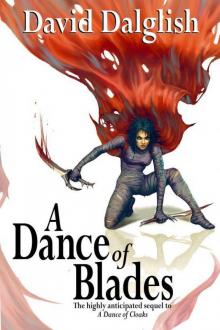 A Dance of Blades s-2
A Dance of Blades s-2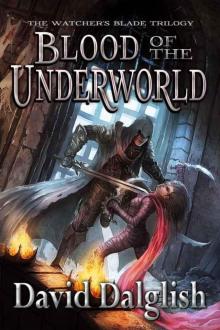 Blood of the Underworld
Blood of the Underworld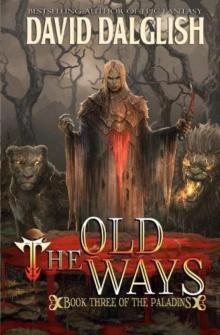 The Old Ways p-3
The Old Ways p-3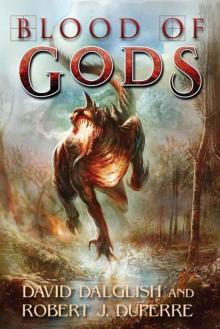 Blood Of Gods (Book 3)
Blood Of Gods (Book 3)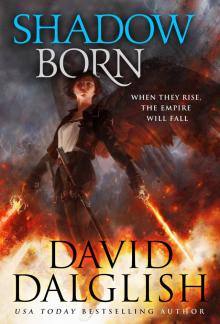 Shadowborn
Shadowborn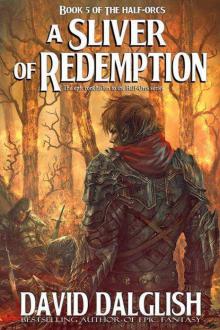 A Sliver of Redemption (Half-Orcs Book 5)
A Sliver of Redemption (Half-Orcs Book 5)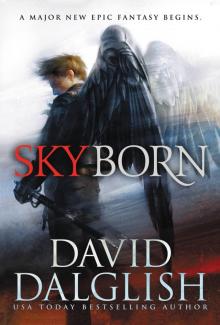 Skyborn
Skyborn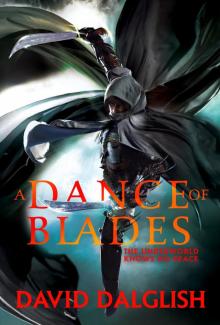 A Dance of Blades (Shadowdance 2)
A Dance of Blades (Shadowdance 2)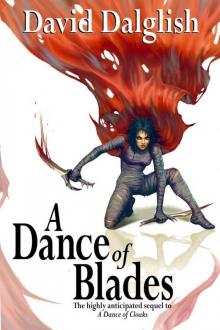 A Dance of Blades, (Shadowdance Trilogy, Book 2)
A Dance of Blades, (Shadowdance Trilogy, Book 2)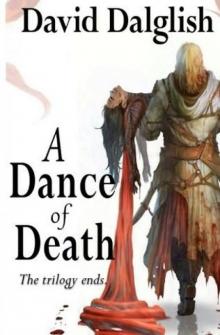 A Dance Of Death s-3
A Dance Of Death s-3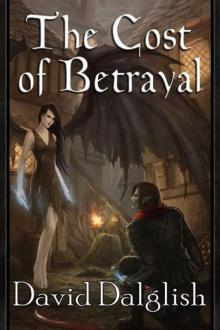 The Cost of Betrayal (Half-Orcs Book 2)
The Cost of Betrayal (Half-Orcs Book 2)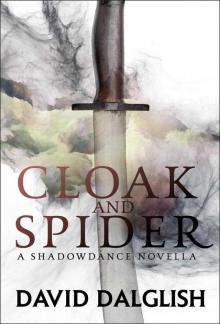 Cloak and Spider: A Shadowdance Novella
Cloak and Spider: A Shadowdance Novella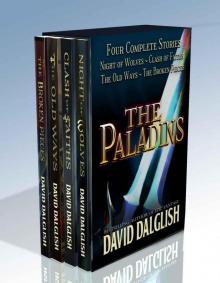 The Paladins
The Paladins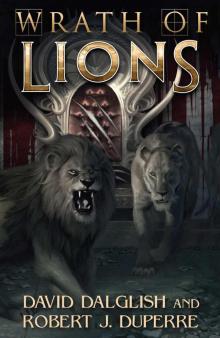 Wrath of Lions
Wrath of Lions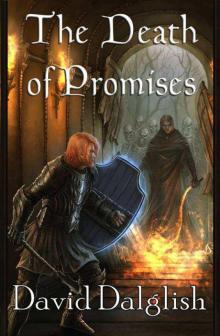 The Death of Promises (Half-Orcs Book 3)
The Death of Promises (Half-Orcs Book 3)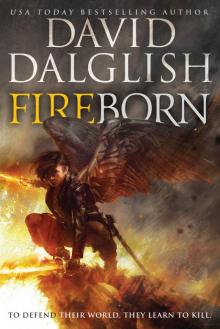 Fireborn
Fireborn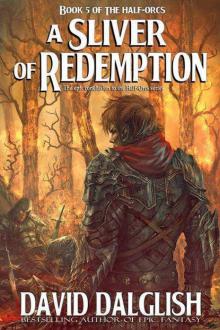 A Sliver of Redemption h-5
A Sliver of Redemption h-5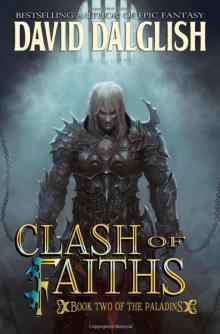 Paladins 02 - Clash of Faiths
Paladins 02 - Clash of Faiths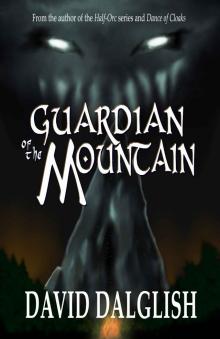 Guardian of the Mountain
Guardian of the Mountain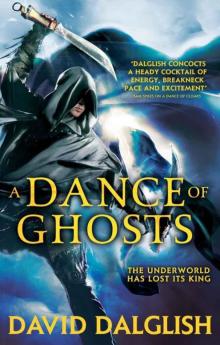 Shadowdance 05 - A Dance of Ghosts
Shadowdance 05 - A Dance of Ghosts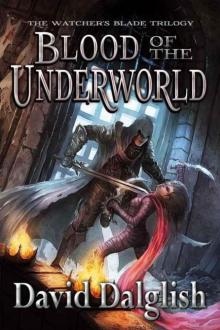 Blood of the Underworld twb-1
Blood of the Underworld twb-1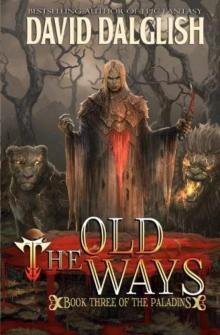 Paladins: Book 03 - The Old Ways
Paladins: Book 03 - The Old Ways Dawn of Swords
Dawn of Swords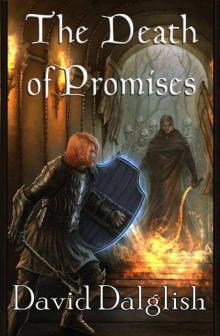 The Death of Promises h-3
The Death of Promises h-3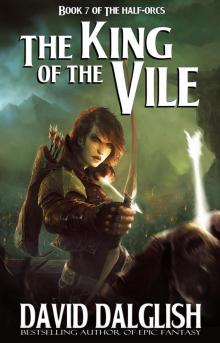 The King of the Vile
The King of the Vile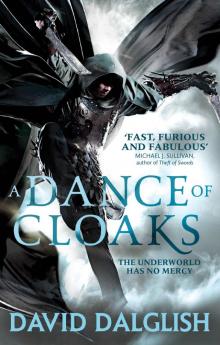 Shadowdance 01 - A Dance of Cloaks
Shadowdance 01 - A Dance of Cloaks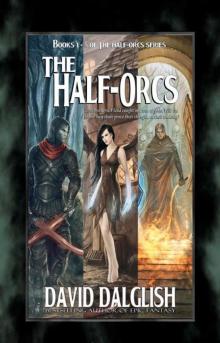 The Half-Orcs: Books 1-5
The Half-Orcs: Books 1-5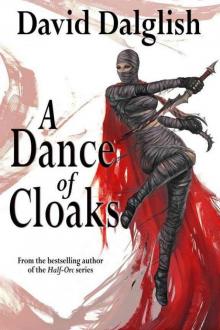 A Dance of Cloaks
A Dance of Cloaks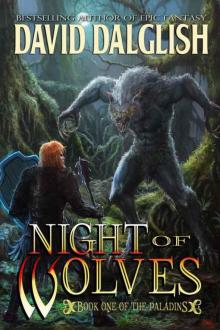 Paladins 01 - Night of Wolves
Paladins 01 - Night of Wolves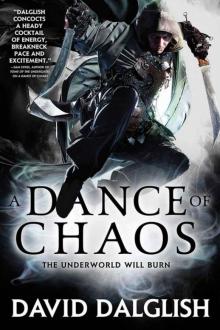 A Dance of Chaos: Book 6 of Shadowdance
A Dance of Chaos: Book 6 of Shadowdance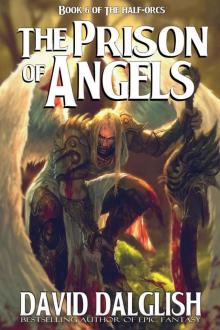 The Prison of Angels h-6
The Prison of Angels h-6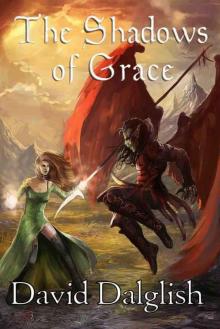 The Shadows of Grace (Half-Orcs Book 4)
The Shadows of Grace (Half-Orcs Book 4)